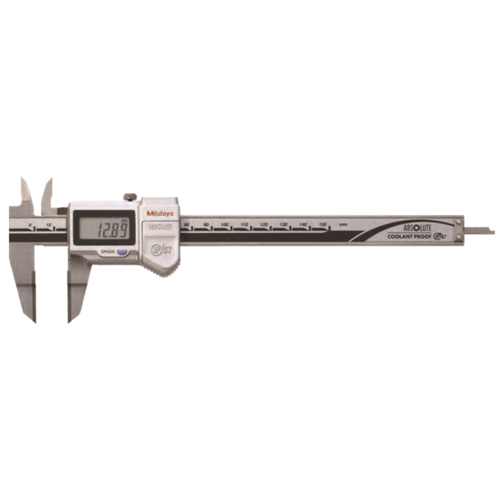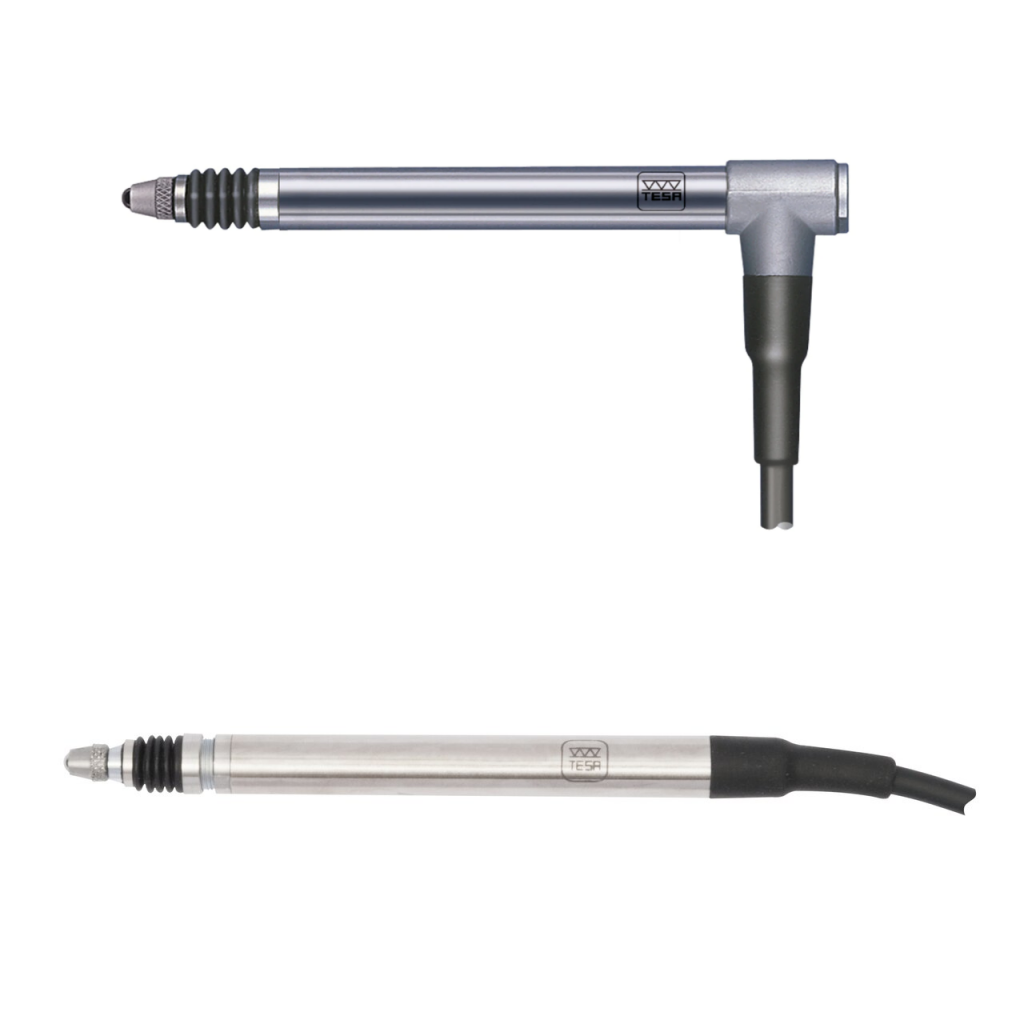
Thickness measurements are an essential aspect in the industrial sector and in the metrological laboratory, especially in the production of continuous products. Correctly measuring the thickness of a material is essential to guarantee the conformity and quality of the final product.
There are several thickness measurement techniques, including LASER thickness gauges, comparators, contact thickness gauges, fork thickness gauges and ultrasonic thickness gauges.
LASER thickness gauges are used to measure the thickness of easily deformable materials . Their precision is very high and they allow for non-contact measurements.
Comparators, on the other hand, are mechanical instruments used to compare the thickness of an object with a reference sample.
Contact thickness gauges, on the other hand, are instruments that use a probe in direct contact with the surface to be measured. They are used in multiple sectors, such as metal production, wood, plastic and leather processing.
Fork thickness gauges are used for measuring the thickness of thin materials, such as films, tapes or carpets.
Ultrasonic thickness gauges use ultrasound echoes to determine the thickness of a material. These instruments are particularly used in the naval and aeronautical industry for measuring the thickness of metal components.
Product categories for thickness measurement
Technical insight
Thickness measurement is a fundamental operation in industry and production. There are several techniques for measuring the thickness of an object, each of which has specific characteristics and advantages.
Thickness measurements with vernier calipers
Vernier calipers are one of the most common methods of measuring the thickness of an object. Due to their economy and simplicity, they are used for a variety of different applications in industry. There are various types of vernier calipers, each of which is suited to specific measurement needs.
Thickness measurements with industrial LASER distance meters
LASER distance meters are instruments that use a beam of light to measure the thickness of an object. These LASER instruments are often used in applications with large measuring ranges. The distance meters use high-precision lasers to determine the measurement point and are capable of guaranteeing high measurement precision. They can also be used remotely or in the presence of environmental contaminants as they do not require direct contact with the object being measured.
Thickness measurements with contact micrometers
Contact micrometers are another methodology often used to measure the thickness of an object. Due to their precision, contact micrometers are used in many industrial sectors and are available in many models. A flaw of them is that they can cause superficial damage if used incorrectly, such as marks and scratches in their contact surface.
Thickness measurements with digital comparators
Digital comparators are high-precision instruments capable of measuring the thickness of small objects with a resolution of 0,0005 millimeters. These devices exploit the measurement principle of a high-precision linear transducer. Thanks to their precision and accuracy, digital comparators are often used in the precision engineering, automotive or aeronautical sectors.
Thickness measurements with feeler gauges in contact with the fork
Fork contact thickness gauges are tools used to measure the thickness of flat objects, such as plates or strips. These instruments are equipped with a fork connected to a spring, which presses against the object being measured. The results of this measurement are calculated using a graduated scale or a digital display. Due to their robustness and precision, fork contact thickness gauges are commonly used in industry and material acceptance laboratories.
Thickness measurements with laser thickness gauges
Laser thickness gauges are instruments used to measure the thickness of materials through the use of laser light sources. These instruments have a high precision that allows precise measurement of thin and easily deformable materials. LASER thickness gauges are mainly used in production, where non-contact and high-speed measurement is required.
Thickness measurements with magnetic thickness gauges
Magnetic thickness gauges represent a measurement technique widely used in the galvanic coating and painting industry. These instruments use magnetic fields and induced currents to detect variations in the magnetic field, in order to determine the thickness of materials. Magnetic thickness gauges allow measurement of the backfill material without destruction of the substrate.
Thickness measurements with ultrasonic thickness gauges
Ultrasonic thickness gauges are one of the most used measuring instruments in the naval industry, aircraft construction and in the production of sheet metal products. These instruments use ultrasound to measure the speed of wave propagation in a material. Based on the speed of wave propagation, it is possible to determine the thickness of the material. The great advantage of these instruments is given by the possibility of measuring the thickness of a sheet metal by operating from only one side of the material.
Partner website: www.innovacheck.com








